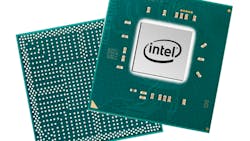California Stands to Suffer if US-China Trade War Worsens
Churning out everything from cars and computer chips to nuts and wine, California's mighty economy will suffer big time if the US-China trade war worsens.
Billions of dollars and many jobs are at risk in the richest and most populous state -- a world-class economy and bastion of opposition to President Donald Trump.
"If there's one region in the United States that will be most impacted by the trade war, it's going to be LA," said Stephen Cheung, former director of international trade at the Port of Los Angeles and now chairman of an NGO called World Trade Center Los Angeles.
Last year in Los Angeles-area ports, two-way trade with China totaled more than $170 billion, Cheung said.
"China is our number one trading partner," he said.
The world's two largest economies have squared off in a tit for tat trade war that threatens to disrupt international commerce.
"Our fear is that the cycle will keep growing to the point where it's going to depress the economy," said Cheung.
'Very Concerned'
California boasts the world's fifth largest economy, with annual output of $2.7 billion, more than that of Britain.
The state of 40 million people is home to the powerful tech companies of Silicon Valley and the Hollywood movie and TV industry.
The state exports electric cars, engines, auto parts and aluminum, besides being the nation's breadbasket.
Pistachios, almonds, oranges, walnuts, plums, lemons and strawberries are among the farm products targeted in Chinese tariffs imposed in retaliation for US levies ordered by Trump.
"Although we don't know the exact ramifications these tariffs will have on our crops, we do understand the loss of the Chinese market will result in other foreign suppliers moving into the marketplace, causing long-term lost sales opportunities for our farmers," said Sara Neagu-Reed of the California Farm Bureau Federation.
China was the third largest market in 2016 for California farm goods, after Canada and the European Union, with imports to the tune of $2 billion.
"We as growers are very concerned," said Holly King, head of the Almond Board of California. The sector exported $518 million worth of almonds in 2016. Now, the nut has been hit with a 50% tariff in China.
For pistachios -- $530 million in exports that year -- the levy is 45%.
Casey Creamer, executive vice president of the California Citrus Mutual, which represents 2,500 growers, said the organization's focus for now is on supporting the US government in the face of Chinese trade practices which "have been very bad for our industry."
Trump, who says he wants to reduce the US trade deficit with China, has accused other countries of taking advantage of the US when it comes to bilateral trade.
Many producers agree that China has engaged in unfair practices but "instead of using trade tariffs as a tactic" the better approach is to negotiate toward an accord that benefits both sides, said Cheung.
'Frustrating'
Wine was slapped with a 35% tariff in China, which hurts Michael Honig, who owns a winery in Napa Valley north of San Francisco.
"We started exporting to China over 10 years ago and built up a good market," he said. "And what we've seen now is everything just stopped."
His Asian buyer has put orders on hold to see what happens before resuming purchases.
"It's kind of frustrating," Honig said.
Mario Cordero, executive director of the Port of Long Beach, which along with that of Los Angeles moved 7.5 million containers last year, said that for now he is not aware of any stranded shipments but he will have a better idea of the fallout from the tariffs in six months.
The NGO California Budget & Policy Center has warned that there are more than 285,000 jobs in California at stake in industries affected by the trade war.
Cheung said prices at the consumer level should start going up in a matter of weeks, making importers more wary of buying products.
What's more, the war could scare away Chinese investment in California.
"The economy has already been impacted" and even if the war subsides "it's going to take a while to get back to operating normally," Cheung said.
By Javier Tovar
Copyright Agence France-Presse, 2018
About the Author
Agence France-Presse
Copyright Agence France-Presse, 2002-2025. AFP text, photos, graphics and logos shall not be reproduced, published, broadcast, rewritten for broadcast or publication or redistributed directly or indirectly in any medium. AFP shall not be held liable for any delays, inaccuracies, errors or omissions in any AFP content, or for any actions taken in consequence.
